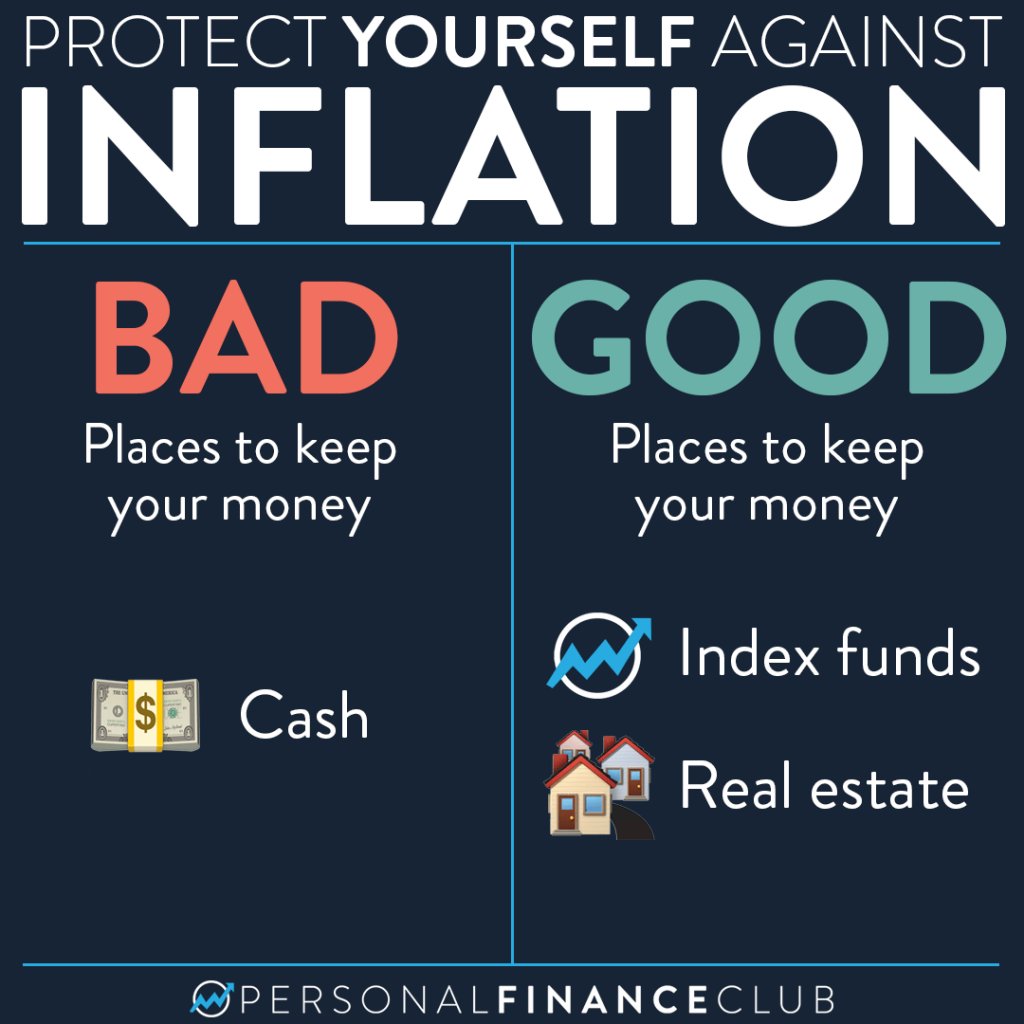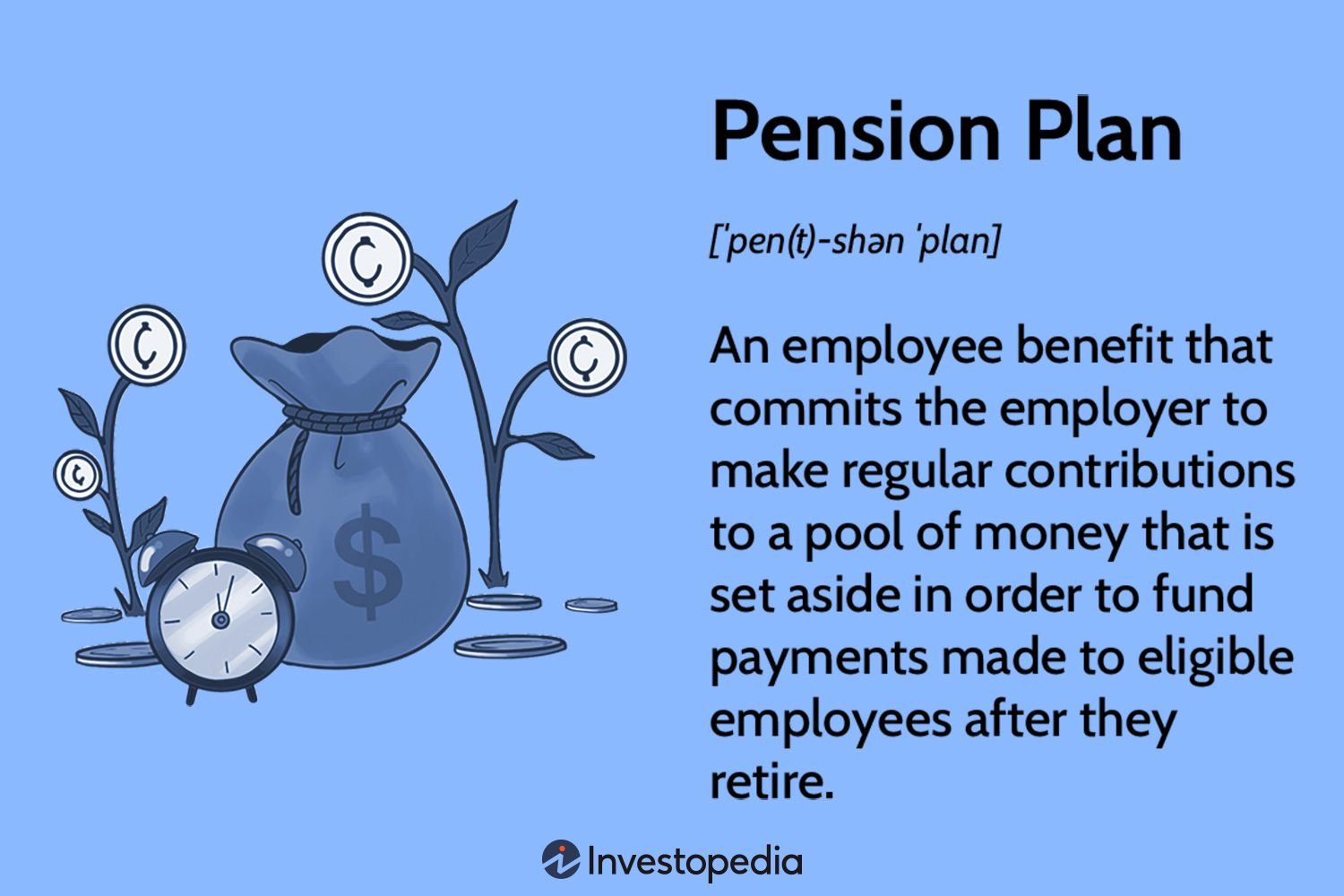Wondering how to protect your investments from inflation? Look no further! In this article, we will discuss some effective strategies that can help you safeguard your hard-earned money from the eroding effects of inflation. It’s no secret that inflation can eat away at the value of your investments over time, but fear not! By implementing these proactive measures, you can take control of your financial future and ensure that your investments remain resilient against the rising tide of inflation. Ready to learn how to protect your investments from inflation? Let’s get started!
How to Protect Your Investments from Inflation
Investing is an essential part of securing your financial future. However, one of the biggest risks investors face is inflation. Over time, the rising cost of goods and services can erode the purchasing power of your investments. To safeguard your portfolio and protect against inflation, it is crucial to implement strategies that can help preserve and grow your wealth. This article will provide you with valuable insights and practical tips on how to protect your investments from inflation.
Understanding Inflation: The Silent Wealth Eroder
Before diving into the strategies to combat inflation, it’s important to have a clear understanding of what inflation is and how it impacts your investments. Inflation refers to the general increase in prices of goods and services over time. When inflation occurs, each unit of currency buys fewer goods and services, reducing the value of your money.
Inflation is typically measured by various indicators, such as the Consumer Price Index (CPI) or the Producer Price Index (PPI). These indices track the average price changes of a basket of goods or services, providing insights into the overall inflation rate.
While a moderate level of inflation is considered healthy for economies, high inflation can be detrimental to investors. It erodes the purchasing power of your money, reducing the value of your investments. Therefore, protecting your investments from inflation is vital for long-term financial success.
1. Diversify Your Portfolio
Diversification is a fundamental strategy in investment management. By spreading your investments across different asset classes and sectors, you can minimize risk and protect against inflation. Here’s how you can diversify your portfolio effectively:
- Asset Allocation: Allocate your investments across various asset classes, such as stocks, bonds, real estate, and commodities. Each asset class may respond differently to inflation, providing a hedge against its effects.
- Sector Diversification: Within each asset class, diversify your investments across different sectors. This helps reduce exposure to any single industry’s performance or vulnerability to inflationary pressures.
- Geographic Diversification: Consider expanding your investments beyond your domestic market. Investing internationally can provide exposure to different economic conditions and currencies, reducing the impact of inflation in one country.
2. Invest in Inflation-Protected Securities
Inflation-protected securities, also known as inflation-indexed bonds or Treasury Inflation-Protected Securities (TIPS), are bonds specifically designed to protect against inflation. Here’s how they work:
- Principal Adjustments: Unlike traditional bonds, the principal value of inflation-protected securities adjusts with inflation. As the CPI or other inflation indexes rise, the principal value increases, providing investors with a hedge against rising prices.
- Regular Interest Payments: In addition to principal adjustments, inflation-protected securities also pay regular interest. The interest payments are based on the adjusted principal value.
- Treasury Inflation-Protected Securities (TIPS): TIPS are issued by the U.S. Treasury and are backed by the full faith and credit of the government. They are considered a relatively safe investment option for protecting against inflation.
3. Consider Real Estate Investments
Investing in real estate can be an effective strategy for inflation protection. Real estate investments have the potential to outpace inflation and provide income through rental yields. Here are some ways to invest in real estate:
- Residential Properties: Investing in residential properties, such as single-family homes or apartments, can provide steady rental income and potential capital appreciation over time.
- Commercial Properties: Commercial real estate, including office buildings, retail spaces, and industrial properties, can offer higher rental income and potential long-term growth.
- Real Estate Investment Trusts (REITs): REITs are investment vehicles that pool investors’ money to invest in a diversified portfolio of income-generating real estate. They provide an easy way to access the real estate market without directly owning properties.
4. Invest in Commodities
Commodities, such as gold, silver, oil, and agricultural products, have historically been considered a hedge against inflation. Investing in commodities can provide protection during inflationary periods. Here are different ways to invest in commodities:
- Physical Ownership: You can buy physical commodities like gold or silver bars and hold them as a store of value. These precious metals have a long history of retaining their worth during inflationary periods.
- Exchange-Traded Funds (ETFs): Commodity ETFs track the performance of a specific commodity or a basket of commodities. They offer a convenient way to gain exposure to various commodities without the need for physical ownership.
- Futures Contracts: Futures contracts allow you to speculate on the future price movements of commodities. They can be a more advanced investment strategy, requiring knowledge of market dynamics and risk management.
5. Regularly Review and Adjust Your Portfolio
Investing is an ongoing process, and it’s essential to regularly review and adjust your portfolio to adapt to changing market conditions and inflationary pressures. Here are some actions you can take:
- Monitor Inflation Indicators: Stay informed about inflation indicators, such as the CPI or PPI. This will help you assess the potential impact of inflation on your investments.
- Rebalance Your Portfolio: Over time, the performance of different asset classes may deviate from your initial allocation. Periodically rebalance your portfolio to maintain the desired asset allocation and risk level.
- Consider Professional Advice: If managing your investments becomes overwhelming, consider seeking advice from a financial advisor who can help you navigate inflationary periods and make informed investment decisions.
Wrap Up
Protecting your investments from inflation is crucial for long-term financial success. By diversifying your portfolio, investing in inflation-protected securities, considering real estate investments, exploring commodities, and regularly reviewing your portfolio, you can navigate inflationary periods more effectively. Remember, protecting your investments is a continuous process that requires vigilance and adaptation. Stay informed, make informed decisions, and seek professional advice when needed.
 Assets for Protection Against Inflation | How To Protect Your Money From Inflation ?
Assets for Protection Against Inflation | How To Protect Your Money From Inflation ?
Frequently Asked Questions
Frequently Asked Questions (FAQs)
How can I protect my investments from inflation?
There are several strategies you can employ to safeguard your investments from inflation:
What is inflation and how does it affect investments?
Inflation refers to the general increase in prices of goods and services over time, resulting in the decrease in purchasing power of money. Since inflation erodes the value of money, it can negatively impact the returns on investments.
Should I invest in stocks to protect against inflation?
Stocks can be a good hedge against inflation since companies can pass on increased costs to consumers in the form of higher prices. However, stock prices can be volatile, so it’s important to diversify your portfolio with other assets as well.
Are bonds a safe investment during inflationary periods?
Bonds may not be the best option during inflationary periods, as rising inflation tends to decrease the value of fixed-income investments. However, inflation-indexed bonds, such as Treasury Inflation-Protected Securities (TIPS), provide protection against inflation.
What role do commodities play in protecting against inflation?
Commodities, such as gold, oil, and agricultural products, have historically been considered a hedge against inflation. Investing in commodities can help offset the impact of rising prices on your overall portfolio.
Are real estate investments a good option to mitigate inflation risks?
Real estate investments can be an effective way to hedge against inflation. Real estate values and rental income tend to rise with inflation, providing a potential safeguard for your investment.
Should I consider investing in inflation-protected mutual funds or ETFs?
Inflation-protected mutual funds or exchange-traded funds (ETFs) track inflation indexes and adjust their holdings accordingly. These funds can be a convenient way to gain exposure to inflation-protected assets.
Is diversification important for protecting investments from inflation?
Yes, diversification is important for protecting investments from inflation. By spreading your investments across different asset classes, such as stocks, bonds, real estate, and commodities, you can reduce the impact of inflation on your overall portfolio.
Final Thoughts
To protect your investments from inflation, diversify your portfolio by including assets that tend to perform well during inflationary periods. This could include investing in stocks from sectors such as energy, materials, and utilities, as well as real estate and commodities. Additionally, consider investing in inflation-protected securities like Treasury Inflation-Protected Securities (TIPS) or purchasing inflation-indexed annuities. Keep a close eye on market trends and adjust your investments accordingly. By following these strategies, you can safeguard your investments from the effects of inflation and maintain their value over time.



